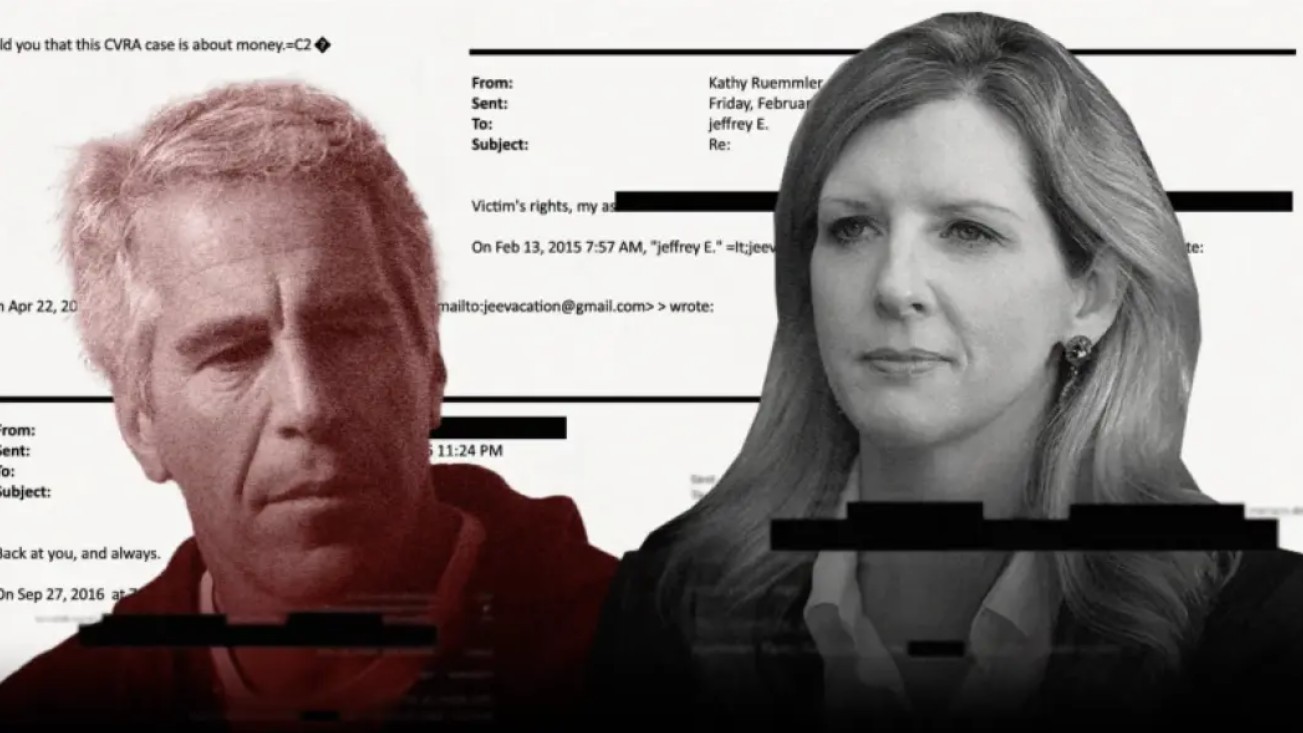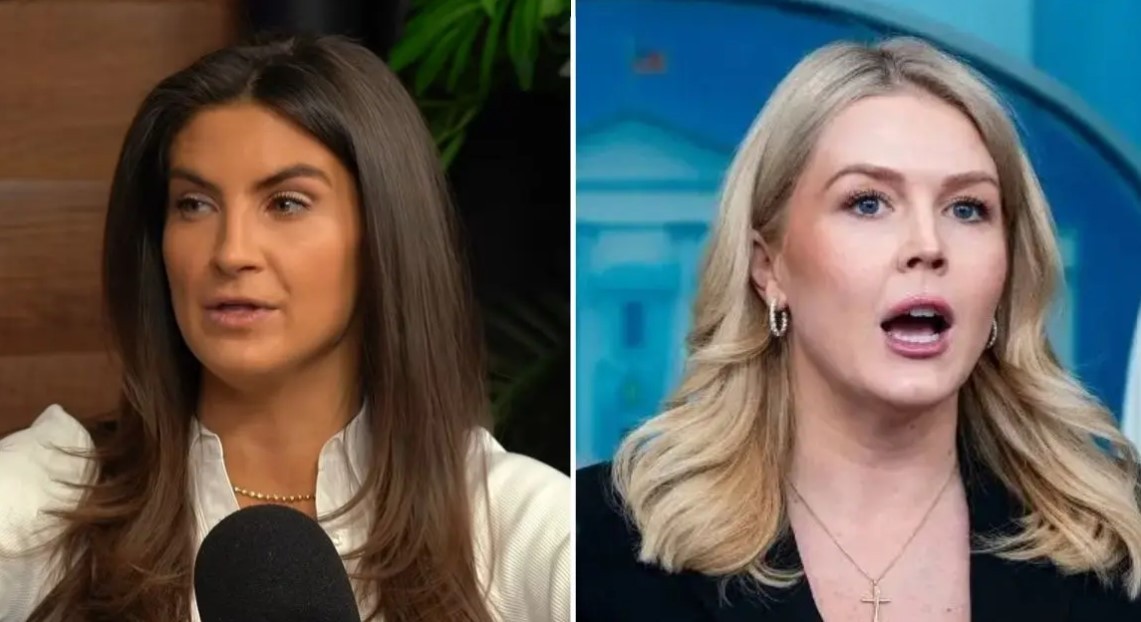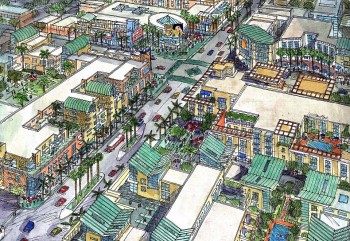Who is Francois Bayrou (French PM): Personal Life, Career, and Net Worth
Who is François Bayrou?
The new prime minister of France is François Bayrou, a 73-year-old centrist leader of the Democratic Movement Party (MoDem). Known for his long-standing career in politics and his advocacy for centrist policies, Bayrou’s appointment comes at a pivotal moment for France, following the collapse of the previous government.
François Bayrou was appointed as prime minister after the French government faced a dramatic collapse due to political scandals and internal disputes. His selection reflects a strategic move to stabilize the country and bridge divisions between the left and right. Bayrou’s reputation as a seasoned centrist leader and his commitment to political reform make him a key figure in the country’s efforts to rebuild public trust and ensure governmental stability. His appointment has been met with cautious optimism from both supporters and critics.
Let’s delve into his background, education, political career, family, assets, and what his leadership might mean for France’s future.
Learn more: Who is Michel Barnier: Early Life, Family, Political Future, and Net Worth
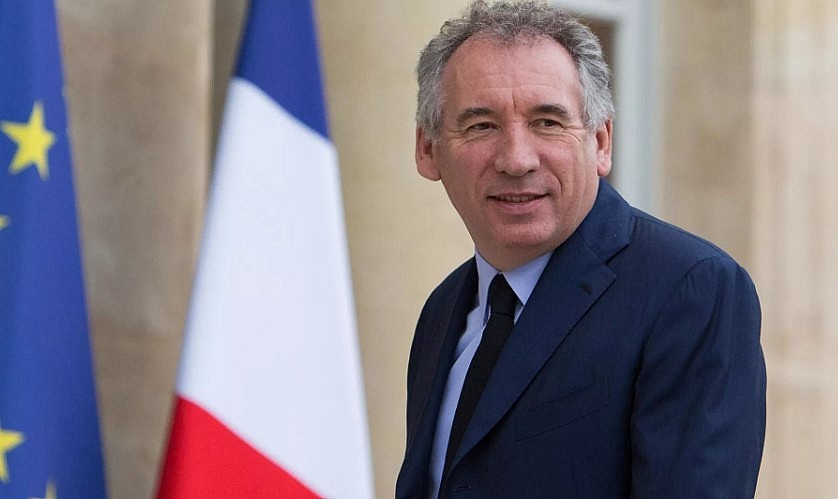 |
| France’s embattled President Emmanuel Macron has appointed centrist ally Francois Bayrou as prime minister |
Early Life and Education
François Bayrou was born on May 25, 1951, in Bordères, a small village in the Pyrénées-Atlantiques region of southwestern France. The son of a farmer, Bayrou’s upbringing was deeply rooted in rural traditions and Catholic values. His father tragically passed away in a farming accident when François was young, a life-changing event that shaped his resilience and work ethic. As the eldest of six siblings, Bayrou took on significant responsibilities early in life, further developing his sense of duty and perseverance.
Bayrou excelled academically, demonstrating an early passion for literature and philosophy. He pursued higher education at the University of Bordeaux, where he earned a degree in classical literature. His studies emphasized Latin and Greek, underscoring his appreciation for cultural heritage and intellectual rigor. This academic background instilled in him a deep respect for education, which would later become a cornerstone of his political platform.
In addition to his formal education, Bayrou’s formative years were influenced by the works of French philosophers such as Montaigne and Tocqueville, which shaped his centrist and humanistic political ideology.
Family Life
François Bayrou has been married to his wife, Élisabeth Perlant, for over four decades. The couple shares a strong partnership, with Élisabeth often described as a quiet but steadfast supporter of her husband’s career. Together, they have raised six children, who have largely avoided public life, reflecting the family’s preference for privacy.
The Bayrou family resides in their ancestral home in the Pyrénées, a property steeped in history and tradition. Despite the demands of political life, Bayrou has often emphasized the importance of maintaining close family ties. His children have pursued diverse careers, ranging from academia to the arts, showcasing the family’s broad intellectual and cultural interests.
Bayrou frequently speaks about the influence of his rural upbringing and family life on his values, particularly his emphasis on hard work, humility, and community.
Political Career
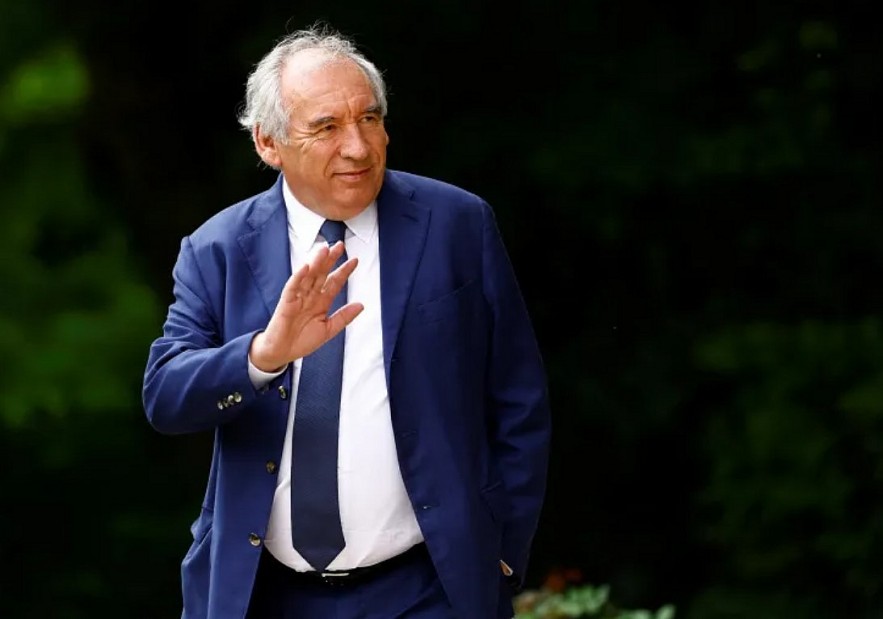 |
| Francois Bayrou, leader of French centrist party MoDem walks outside the Elysee Palace |
François Bayrou’s political career spans over four decades, making him one of France’s most experienced political figures. He began his political journey as a local councilor in the Pyrénées-Atlantiques before rising to national prominence. In the early 1980s, Bayrou joined the Union for French Democracy (UDF), a center-right political alliance. He quickly gained recognition for his eloquence and policy expertise, particularly in the areas of education and European integration.
Minister of Education
One of Bayrou’s most notable roles was serving as France’s Minister of National Education from 1993 to 1997. During his tenure, he championed reforms aimed at modernizing the education system, promoting equality of opportunity, and preserving the French language’s cultural significance. He implemented policies that increased funding for public schools, improved teacher training, and introduced curriculum updates to meet the demands of a changing society.
Bayrou also advocated for the decentralization of educational administration, allowing local authorities greater flexibility in managing schools. His efforts were widely praised for addressing disparities in educational quality across regions, though some reforms faced resistance from unions and political opponents.
Leader of the Democratic Movement (MoDem)
In 2007, Bayrou founded the Democratic Movement (MoDem) after distancing himself from the UDF. The party positioned itself as a centrist alternative, advocating for progressive social policies, fiscal responsibility, and a stronger European Union. Bayrou’s leadership of MoDem has been marked by his dedication to bridging political divides and promoting dialogue across the political spectrum. Under his guidance, MoDem has played a pivotal role in forming coalitions and influencing national policies.
Presidential Campaigns
Bayrou has run for president of France three times (in 2002, 2007, and 2012), each time emphasizing centrist principles and the need for ethical governance. While he never won the presidency, his campaigns elevated his profile and cemented his reputation as a voice of moderation in French politics. His ability to articulate complex issues in an accessible manner endeared him to voters seeking a balanced and thoughtful leader.
Views on the Future
As prime minister, François Bayrou faces significant challenges, including addressing economic inequality, managing immigration, and ensuring France’s energy transition in response to climate change. Bayrou has consistently advocated for pragmatic and inclusive solutions, emphasizing the need for consensus-building and long-term planning.
Bayrou’s vision for France’s future includes:
-
Economic Stability: Advocating for policies that stimulate growth while maintaining fiscal discipline. He supports investments in technology and green energy as drivers of sustainable economic development.
-
Education Reforms: Continuing his lifelong commitment to improving access to quality education for all. Bayrou has proposed expanding vocational training programs and increasing support for underserved communities.
-
European Integration: Strengthening France’s role within the European Union and promoting unity among member states. He envisions a more cohesive EU that can effectively address global challenges such as climate change and economic competition.
Bayrou’s ability to navigate complex issues with empathy and strategic thinking is seen as a key asset in his leadership. His focus on transparency and ethical governance resonates with a public eager for trustworthy and effective political leaders.
Assets and Wealth
François Bayrou’s financial disclosures reveal that he leads a modest lifestyle compared to many other high-profile politicians. His primary assets include his family estate in the Pyrénées and some savings. Known for his transparency, Bayrou has often highlighted the importance of ethical standards in public service, reflecting his belief that political leaders should lead by example.
Bayrou’s commitment to financial modesty has bolstered his image as a leader who prioritizes public service over personal gain. His straightforward approach to wealth and financial transparency stands in contrast to the controversies that have plagued other political figures in recent years.
Conclusion
François Bayrou’s appointment as prime minister marks a new chapter in French politics. With decades of experience and a commitment to centrist values, he is well-positioned to navigate the complexities of modern governance. While challenges lie ahead, Bayrou’s emphasis on dialogue, reform, and integrity provides hope for a more unified and resilient France.
As a leader, Bayrou embodies the qualities of resilience, pragmatism, and vision. His ability to inspire trust and foster collaboration will be critical as France seeks to address its most pressing issues and build a brighter future.
FAQs
1. What is François Bayrou’s political ideology? François Bayrou is a centrist, advocating for policies that balance social progressiveness with fiscal responsibility. He emphasizes dialogue, consensus-building, and pragmatic governance.
2. How many children does François Bayrou have? François Bayrou and his wife, Élisabeth Perlant, have six children. Despite his public career, Bayrou has consistently maintained a focus on family life and privacy.
3. What are François Bayrou’s main priorities as prime minister? Bayrou’s priorities include promoting economic stability, advancing education reforms, addressing climate change, and strengthening France’s role within the European Union.
4. Has François Bayrou ever run for president? Yes, François Bayrou has run for president three times (in 2002, 2007, and 2012). Although he was not elected,
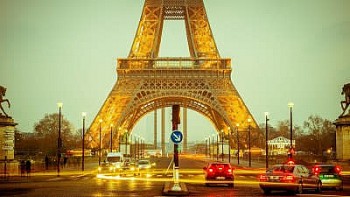 Top 10 Largest Companies In France By Market Cap (2024 Update) Top 10 Largest Companies In France By Market Cap (2024 Update) Which company in France is the biggest in terms of market cap? Check out the full list right below! |
 Top 10 Best Hospitals In France By Newsweek and Statista Top 10 Best Hospitals In France By Newsweek and Statista The World Health Organization declared that the French healthcare system was the greatest on the globe. See The Top 10 Greatest French Hospitals via Statista ... |
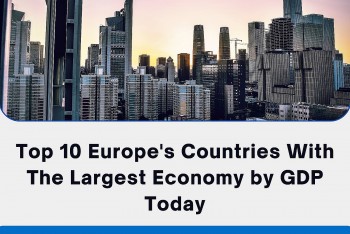 Top 10 Largest European Economy by GDP Today Top 10 Largest European Economy by GDP Today As it faces economic challenges and opportunities, Europe remains a global economic powerhouse. This article discusses the top ten European countries with the largest GDPs ... |
 Top 10 Most Beautiful French Women in 2024/25 Top 10 Most Beautiful French Women in 2024/25 Many lovely women make significant contributions to society and their professions in France, a country renowned for its art, history, and culture. The article profiles ... |
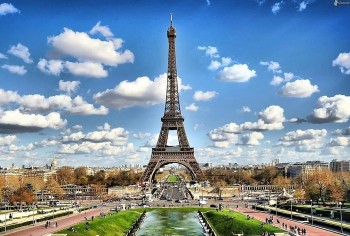 France Calendar in 2025 - Public & Regional Holidays: : Significances and Celebrations France Calendar in 2025 - Public & Regional Holidays: : Significances and Celebrations The abundance of French public holidays allows for plenty of downtime, festivity, and vacation time. Here you may find a list of all the French ... |





